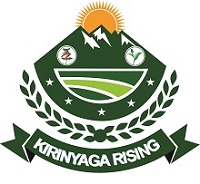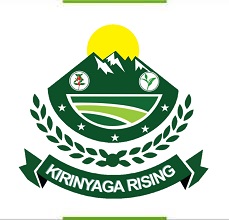Waiguru calls for innovative approach in bridging the gender financing gap
The Council of Governors Chairperson, Anne Waiguru, has called for innovative approach to bridge the glaring financing gap for women in Africa.
Waiguru who was addressing Affirmative Finance Action for Women in Africa (AFAWA) Finance series in Kenya, said that women still face challenges when it comes to financing of their entrepreneurial activities due to failure by financial institutions in understanding and responding to the unique needs of women entrepreneurs.
She said that while many steps have been taken and much progress has been made, it is still work in progress quoting the World Bank’s report “The Cost of Gender Inequality” which highlights that the lack of opportunities for girls and women results in significant economic costs not only for them but also for their households, communities and countries.
The Governor noted that trends indicate that it will take two centuries to close the gap in women economic empowerment – a gap that is widening, not lessening, by the day.
“I do not accept a world that tells the young women that economic equality can wait for their granddaughter’s granddaughters. Our world cannot afford to wait any longer, and I know you agree with me” said the governor terming the AFAWA finance forum as timely intervention on closing the financing gap for women.
Waiguru, who is also the Governor of Kirinyaga County, cited the traditional collateral requirements that only serve to reinforce gender inequalities, noting that innovations such as use of digital technology could be used as alternative solutions in financial services delivery.
She stated the need to equip women with financial knowledge, confidence, and skills to help them choose appropriate financial services and products, as well as develop and manage entrepreneurial activities.
The Chair said the main challenge during the programming and budgeting stage is figuring out which interventions are most successful on the revenue and expenditure side noting that financial products and services need to be tailored to women’s unique lived experiences, needs and aspirations from the start.
She congratulated ADB for initiating the noble program that she said will promote will promote access and use of finance for women, small businesses, and medium-sized enterprises and amplify impact and accelerate gender transformative change.
The COG Chair noted that gender equality lies at the heart of the 2030 agenda for Sustainable Development which asserts gender equality as both a fundamental human right and a necessary foundation for a prosperous and sustainable world.
She said that Kenya is well positioned to take advantage of the economic powerhouse that women represent noting the current Government under the leadership of his Excellency President William Ruto has remodeled the Women Enterprise Fund (WEF) and women will now borrow at a rate of six per cent a year on instant access loans. Additionally, the Individual Micro Loan Product under the Hustler Fund provides a variety for women in terms of providing affordable credit to informal businesses.
She asked the stakeholders to use the AFWA series forum as an opportunity to push for next-level progress, by focusing on ways to increase women’s use of the full range of financial services offers.
Waiguru noted that women are very clear about ways in which informal groups build connections and create a platform to share both ideas and support and that County Governments have implemented various measures to increase access to finance for women and girls in organized groupings through County Empowerment Funds. Additionally, county governments also provide women with trading spaces, tools of trade for their businesses and offer training and other avenues of empowerment.
AFAWA is a pan-African initiative to bridge the USD42 billion financing gap facing women in Africa. It leverages the African Development Bank’s financial instruments and has two innovative solutions to drastically transform the banking and financial landscape in Africa and to create incentives for lending to women in business.
According to the AFAWA initiative, Africa has the highest percentage of women entrepreneurs in the world with one out of four women starting or managing a business in the sub-Saharan Africa. However, these women face multiple challenges to access finance including prohibitive interest rates and legal and regulatory frameworks.



